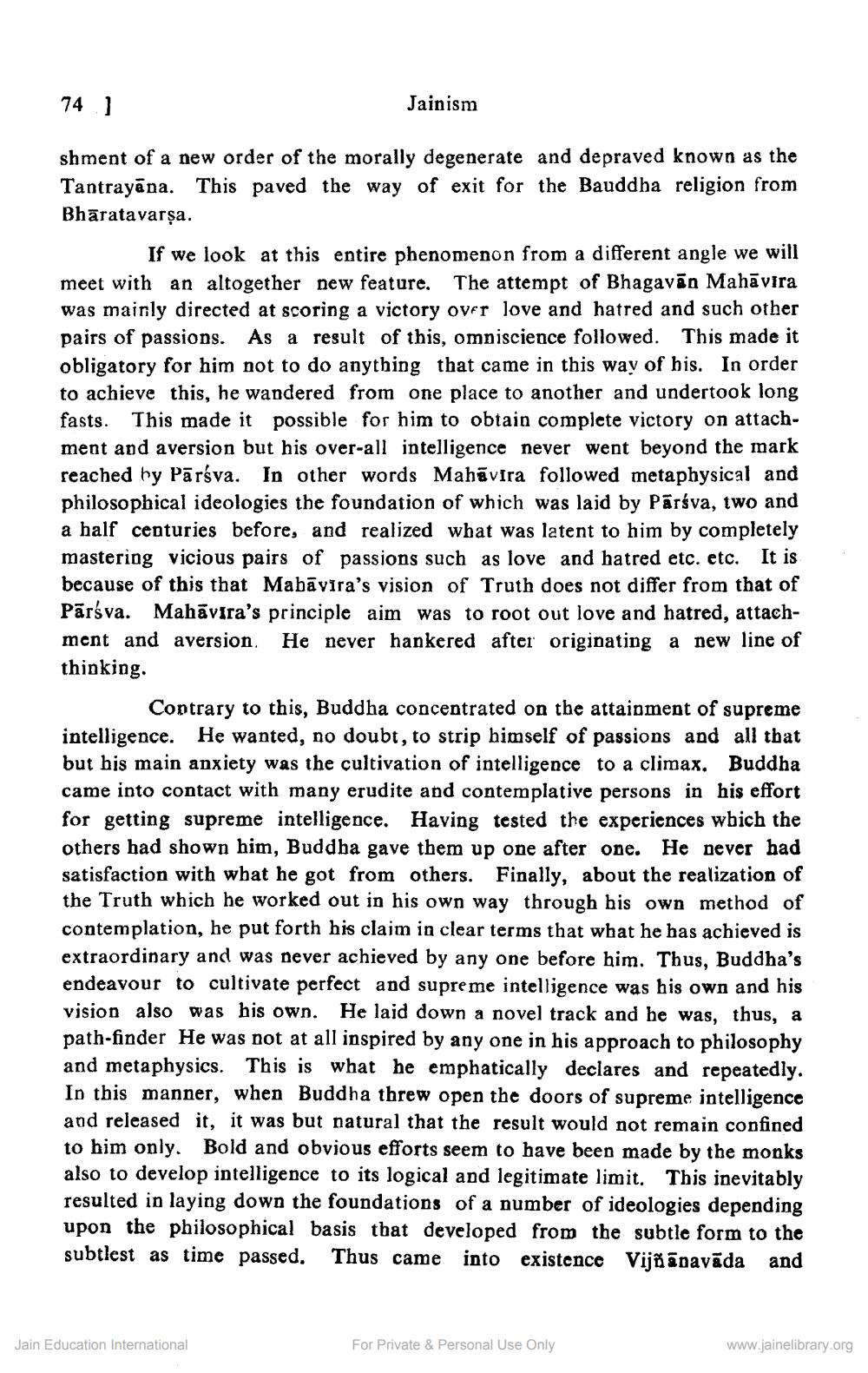________________
74]
Jainism
shment of a new order of the morally degenerate and depraved known as the Tantrayāna. This paved the way of exit for the Bauddha religion from Bhārata varsa.
If we look at this entire phenomenon from a different angle we will meet with an altogether new feature. The attempt of Bhagavān Mahāvira was mainly directed at scoring a victory over love and hatred and such other pairs of passions. As a result of this, omniscience followed. This made it obligatory for him not to do anything that came in this way of his. In order to achieve this, he wandered from one place to another and undertook long fasts. This made it possible for him to obtain complete victory on attachment and aversion but his over-all intelligence never went beyond the mark reached by Pārsva. In other words Mahāvira followed metaphysical and philosophical ideologies the foundation of which was laid by Pārsva, two and a half centuries before, and realized what was latent to him by completely mastering vicious pairs of passions such as love and hatred etc. etc. It is because of this that Mabāvira's vision of Truth does not differ from that of Pārsva. Mahāvira's principle aim was to root out love and hatred, attachment and aversion. He never hankered after originating a new line of thinking.
Coptrary to this, Buddha concentrated on the attainment of supreme intelligence. He wanted, no doubt, to strip himself of passions and all that but his main anxiety was the cultivation of intelligence to a climax, Buddha came into contact with many erudite and contemplative persons in his effort for getting supreme intelligence. Having tested the experiences wbich the others had shown him, Buddha gave them up one after one. He never had satisfaction with what he got from others. Finally, about the realization of the Truth which he worked out in his own way through his own method of contemplation, he put forth his claim in clear terms that what he has achieved is extraordinary and was never achieved by any one before him. Thus, Buddha's endeavour to cultivate perfect and supreme intelligence was his own and his vision also was his own. He laid down a novel track and he was, thus, a path-finder He was not at all inspired by any one in his approach to philosophy and metaphysics. This is what he emphatically declares and repeatedly. In this manner, when Buddha threw open the doors of supreme intelligence and released it, it was but natural that the result would not remain confined to him only. Bold and obvious efforts seem to have been made by the monks also to develop intelligence to its logical and legitimate limit. This inevitably resulted in laying down the foundations of a number of ideologies depending upon the philosophical basis that developed from the subtle form to the subtlest as time passed. Thus came into existence Vijñānavāda and
Jain Education International
For Private & Personal Use Only
www.jainelibrary.org




